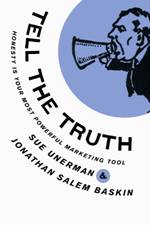-
Belonging:
Sue's new book is out now and available at amazon.co.uk

-
The Glass Wall:
Sue's second book is out now and available at amazon.co.uk

-
Tell the Truth:
Sue's first book is available to buy now at amazon.co.uk

-
Pages
-
Archives
- May 2023
- April 2023
- March 2023
- February 2023
- January 2023
- November 2022
- October 2022
- September 2022
- August 2022
- July 2022
- May 2022
- April 2022
- March 2022
- February 2022
- January 2022
- December 2021
- November 2021
- October 2021
- September 2021
- August 2021
- July 2021
- June 2021
- May 2021
- April 2021
- March 2021
- February 2021
- January 2021
- December 2020
- November 2020
- October 2020
- September 2020
- August 2020
- July 2020
- June 2020
- May 2020
- April 2020
- March 2020
- February 2020
- January 2020
- December 2019
- November 2019
- October 2019
- September 2019
- August 2019
- July 2019
- June 2019
- May 2019
- April 2019
- March 2019
- February 2019
- January 2019
- December 2018
- November 2018
- October 2018
- September 2018
- August 2018
- June 2018
- May 2018
- April 2018
- March 2018
- February 2018
- January 2018
- December 2017
- November 2017
- October 2017
- September 2017
- August 2017
- July 2017
- June 2017
- May 2017
- April 2017
- March 2017
- February 2017
- January 2017
- December 2016
- November 2016
- October 2016
- September 2016
- August 2016
- July 2016
- June 2016
- May 2016
- April 2016
- March 2016
- February 2016
- January 2016
- December 2015
- November 2015
- October 2015
- September 2015
- August 2015
- July 2015
- June 2015
- May 2015
- April 2015
- March 2015
- February 2015
- January 2015
- December 2014
- November 2014
- October 2014
- September 2014
- August 2014
- July 2014
- June 2014
- May 2014
- April 2014
- March 2014
- February 2014
- January 2014
- November 2013
- October 2013
- September 2013
- August 2013
- July 2013
- June 2013
- May 2013
- April 2013
- March 2013
- February 2013
- January 2013
- December 2012
- November 2012
- October 2012
- September 2012
- August 2012
- July 2012
- June 2012
- May 2012
- April 2012
- March 2012
- February 2012
- January 2012
- December 2011
- November 2011
- October 2011
- September 2011
- August 2011
- July 2011
- June 2011
- May 2011
- April 2011
- March 2011
- February 2011
- January 2011
- December 2010
- November 2010
- October 2010
- September 2010
- August 2010
- July 2010
- June 2010
- May 2010
- April 2010
- March 2010
- February 2010
- January 2010
- November 2009
- October 2009
- September 2009
- August 2009
- July 2009
- June 2009
-
Disclaimer:
The opinions expressed on this site are my own and do not necessarily reflect the views of my employer. The posts on this blog are provided 'as is' with no warranties and confer no rights.
Sue Unerman MediaComment is proudly powered by
WordPress
Entries (RSS)
and Comments (RSS).
If you can measure it, you can improve it. If you are measured, you will game it.
Tuesday, May 30th, 2023If you can measure it, you can improve it.
Dr J is one of the greatest basketball players ever. Julius Winfield Erving 11, better known as Dr J won 3 NBA championships, 4 most valuable player awards and is an inductee of the Basketball Hall of Fame. In 1994 Sports Illustrated named him one of the 40 most important athletes of all time. He has a reputation for bringing artistry to the slam dunk.
I saw him speak at a Converse basketball shoe marketing conference in the 1990s, just after he’d retired. He described his upbringing in New York. He said whatever he did as a kid, he continually tried to improve. If his mother sent him to the store to buy milk he would add excitement to the chore by trying to beat his personal best running to and from the shops and up and down stairs to the apartment. Through measurement came both improvement in speed, and satisfaction of growth.
If you are measured, you will game it, prioritising the targets even at the expense of the wellbeing of people and indeed companies.
Targets for schools is one prime example of this. When the government set exam targets for school children commentators and experts pointed to the harmful outcomes for many pupils. One National Union of Teachers report stated: “Teachers object passionately to the accountability agenda imposed on them because of the consequences that flow from it. These are undermining creative teaching and generating labels which limit students’ learning. Crucially, they also threaten children’s self-esteem, confidence and mental health.”
Alfie Moore is an ex-cop who now works as a stand-up comedian. His insider take on policing is both funny and sad. One of his routines takes on the extreme outcomes of the target culture in the police. He tells a story of a man who tries to report a burglary when new targets (to reduce the number of burglaries) have made recording more burglaries against policy (as recording them as other things means that the target gets met, even if the burglars continue to rob). He says: “the guy shows the attending officer scratch marks around his patio door. The cop says: ‘That’s badgers. Badgers have done that.’ And the guy says: ‘ But, they’ve been away with my 42-inch colour TV.’ The cop replies: ‘Must have been two of them. Sometimes they’ll work in gangs.’” This month he commented on Twitter on a story that a retired police officer had carried out breathalyser tests on himself to meet targets: “Well they did say that meeting performance targets was a priority”.
So, targets are good, and targets are bad. Without targets how can you measure progress, but with targets you have to be aware of the externalities of people only focussing on what is measured.
One tactic is the anti-target. As well as setting an objective also set an anti-goal. Be clear on what you don’t want the team to deliver?
Andrew Wilkinson, successful entrepreneur and founder of Tiny Capital, set out his schedule of anti-goals on Medium in 2007. The list of 7 includes: “Never schedule morning meetings, sleep in when necessary” which I know would strike a chord with many people who are trapped in the alpha patriarchal schedules that suit the minority few who mainly set rules for business.
If the goal is to drive profitability, then it might be crucial to set an anti-goal to ensure that you don’t optimise profit at the expense of growth (this might seem redundant but I’ve seen modelling optimisations to profit at all costs that ends up in a non-optimal position).
Measurement is good, but to be effective targets need context and nuance.
Posted in MediaComment | Comments Off on If you can measure it, you can improve it. If you are measured, you will game it.